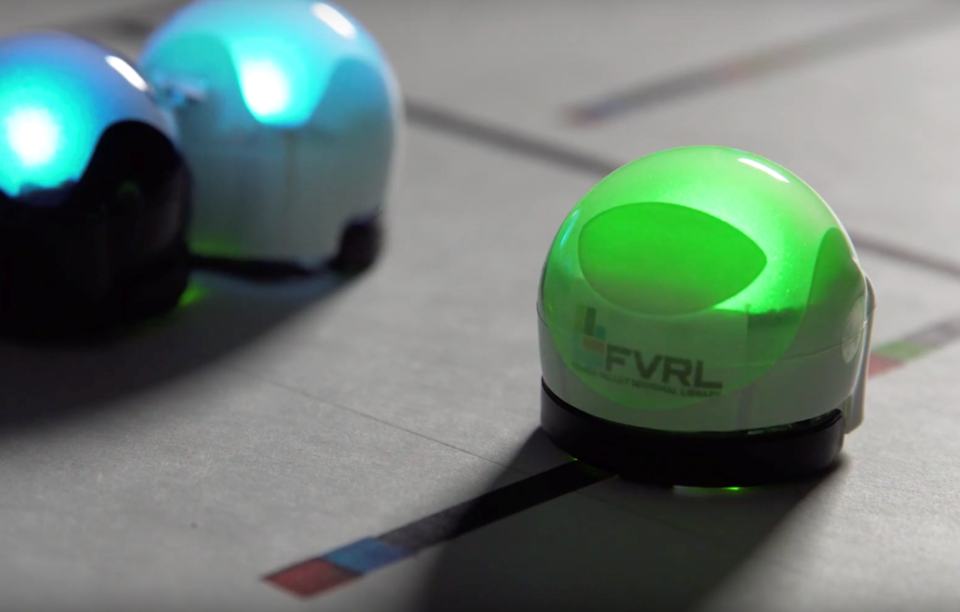Eighteen palm-sized, R2D2esque robots are coming to the Terry Fox Library on Saturday and they are here to teach your children.
Experimenting with the Science World-donated Ozobots starts with colouring a maze of lines on a tablet or paper. Different combinations of colour direct the robot on a unique path across the surface, speeding up, slowing down, changing direction and flashing a handful of LEDs.
It’s an easy window into coding and computational thinking, a spokesperson for the Port Coquitlam library told The Tri-City News, adding that the Ozobots fill an elementary-level age gap (grades 4 to 6) in robotics programming at the library.
“It’s part of a bigger transformational change,” said Bryan Pezzi. “We see literacy as no longer just reading,” adding, “[Libraries] are now a place where learning happens.”
The library will be the first stop for the roving Ozobots collection, the latest addition to the Fraser Valley Public Library’s Playground, a non-traditional collection meant to foster curiosity in science, technology, engineering, art and math (known collectively as STEAM).
Playground first began in 2016, when the library received a donation of ukuleles. Since then, it’s grown to include telescopes, circuit boards, green screens, virtual reality experiences, and of course, robots.
But Terry Fox Library’s focus on STEAM is far from unique. It’s part of a bigger shift across education, one reflected in B.C.’s 2017 changes to its public school curriculum.
At neighbouring Coquitlam Public Library, executive director Todd Gnissios has spent the last four years pumping money into STEAM programs, quietly evolving from what some might characterize as a traditional library.
Where schools have the funding to develop these kinds of programs in a broader context, libraries fill an important niche, offering self-directed learning from “cradle to grave,” said Gnissios.
“To me it's a natural progression,” he said. “Now we're actually providing the tools where people can actually teach themselves.”
As people’s lives grow busier, that means positioning the library as the place to go for people struggling to keep up with the latest software or technology.
Instead paying for an expensive three-month course, both libraries have been investing heavily in tools that allow people to teach themselves.
The collections grow more complex with age, ramping up from Lego to Lego robotics, Ozobots to the Spheros (another kind of robot perfect for tweens).
How the two libraries invest in online resources has changed too. Where Coquitlam used to put most of its money into databases of magazines and newspapers, now they provide courses.
Take lynda.com, a massive database of online video tutorials so effective and wide-ranging that companies like Apple and Google use it to train their staff.
“We now make it available to everyone in Coquitlam with a library card,” said Gnissios.
Libraries used to be the place to go for even the most inane inquiry. But Google has dramatically changed the way many libraries serve the public, siphoning off all the easy answers that used to pile up at the reference desk.
Now people often come to the library to learn how to use the latest e-reader, cell phone or computer program. In a world where technology companies are always trying to win you over to their latest product, that matters, said Gnissios.
“The libraries job is to expose people to new ideas, new thoughts, new ways of doing things,” he said. “We're not going to try and sell them anything.”
“That's what people are looking for.”



